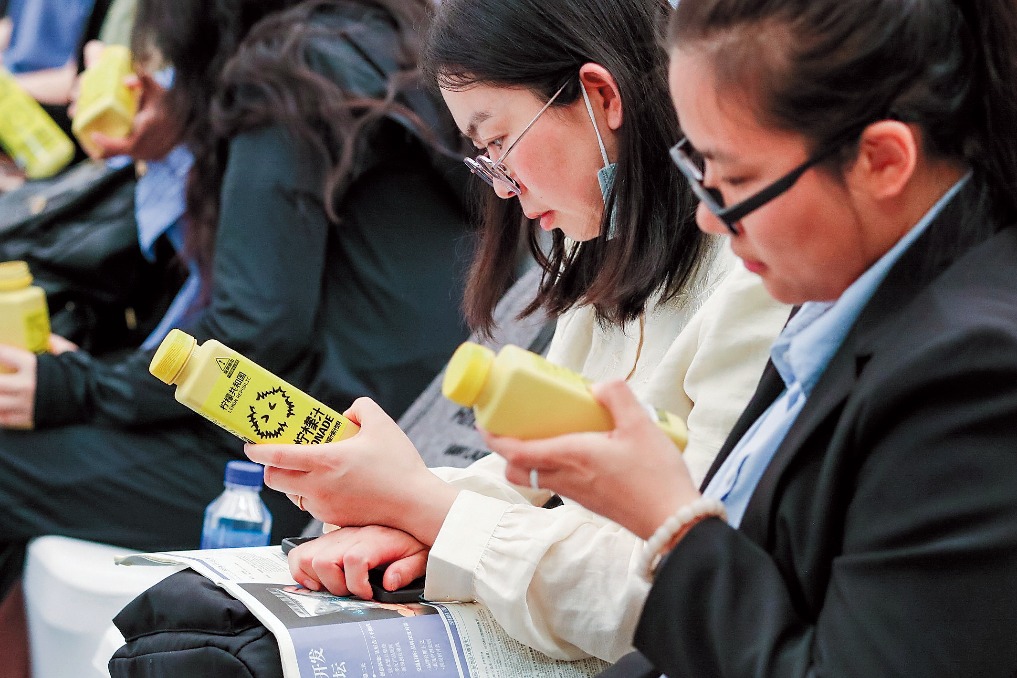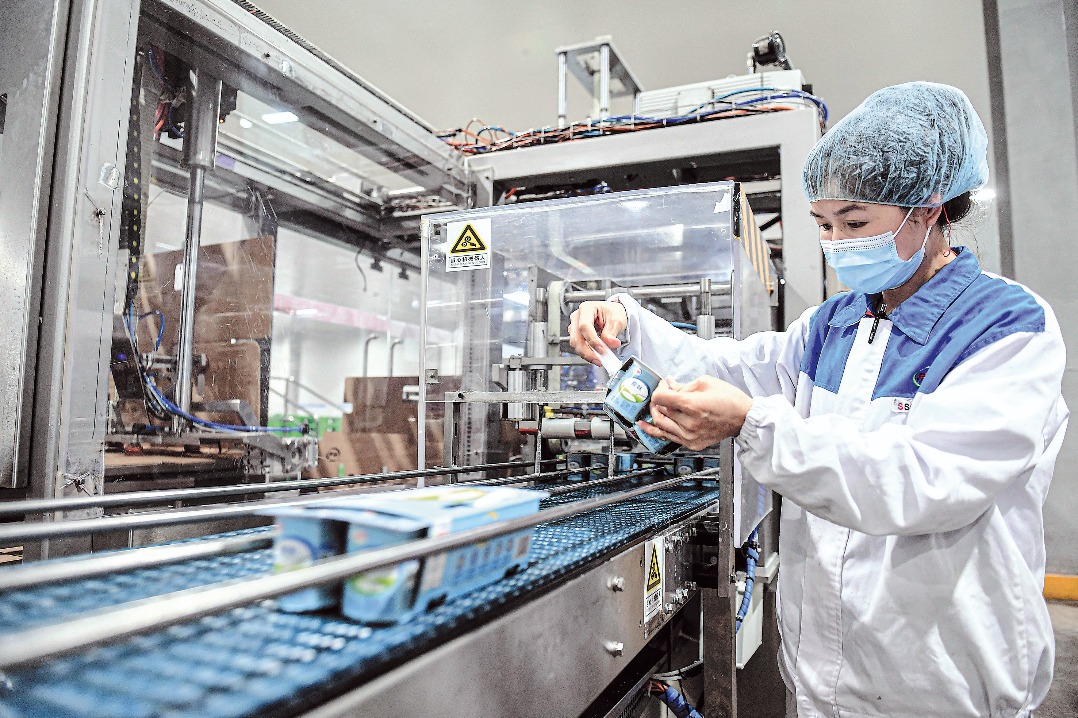Innovation drives new economic growth


This year marks the 40th anniversary of the nation's reform and opening-up. What opportunities and challenges do you think the reform and opening-up have brought to Chinese tech companies?
Liu Zihong: A great number of talents in Chinese tech companies, especially internet companies, were born after the launch of reform and opening-up and thus have enjoyed benefits brought about by this policy.
These talents are able to receive high-quality education from home and abroad to grasp advanced knowledge in technologies and form an innovative mind thanks to reform and opening-up.
In addition, the deepening of reform and opening-up has brought up a group of Chinese internet giants and provided them with a great innovative environment, so that they are able to survive and grow.
We notice that some Chinese enterprises have already stood at the forefront of fields including e-commerce and mobile payment, but going forward they will need to explore "no man's land".
It follows that entrepreneurs need to be more innovative to explore some unexplored fields to catch up with some precious opportunities.
What do you think about Chinese internet companies' innovations in recent years? Which fields are expected to become the next frontier of innovation?
Liu Zihong: Chinese internet enterprises have grown at an unprecedented speed with some of them having stood out to lead the world, such as e-commerce and mobile payment companies.
I think that human-computer interaction, artificial intelligence and IoT are expected to be trendsetting in the future and each of them will be able to become an important platform to serve a wide range of industries.
Human-computer interaction became crucial last year. It will develop rapidly and start to be applied on a large scale this year.
In the field of human-computer interaction, only limited types of technologies have the potential to become such platform-like technologies. I think that flexible electronics have great potential as they break the limit of physical space and have wide applications in a variety of industries.
What are Royole's core businesses and how are they developing?
Liu Zihong: Our businesses are underpinned by technologies of flexible displays, flexible sensors and smart devices, with all three developing neck and neck.
We are also integrating them into one technological platform called Flexible+. It represents the idea that our fundamental and innovative technologies regarding flexible electronics will be applied into a wide range of industries including smartphones, tablets, wearable devices and smart home, as well as intelligent architecture and decoration.
Royole has accumulated more than 1,700 patents, which means one patent nearly every day. How has Royole achieved this?
Liu Zihong: In fact, if you and your team really focus on innovation, you just come up with new ideas continuously, with patents coming naturally.
In Royole, about 70 percent of employees are technical and R&D staff, who come up with great ideas every day. Our R&D costs accounted for roughly 80 percent of the total spending in the first three years.
The past two years witnessed a decrease of R&D as more of our products have entered the market, but still, over half of the total spending is on R&D.
How large will the flexible electronics market be?
Liu Zihong: Some international research institutes predicted that the market size of flexible electronics is expected to exceed $300 billion in the next five to 10 years. It is hard to say how accurate this figure is, but I believe that the market will be huge as flexible electronics technologies are universal and can be applied in various industries.
Royole was established and is operating in Silicon Valley, Hong Kong and Shenzhen simultaneously. What was the reasoning behind this unusual decision?
Liu Zihong: It was not an easy decision. We were very cautious about it as we were afraid that such a large-scale operation would heavily burden a startup's early development and may even drag the company down to collapse.
This decision was based on what we are going to do in the future. We need to integrate the different resources of those three places to facilitate our businesses.




































